By Harry van der Velde for Enlivening Edge Magazine
This essay is built on the assumption that all complexity in nature and society is an outcome of trillions of small iterations. A thorough 500+ page book on this is published by the mathematician Stephen Wolfram. It convinced me of the validity of this assumption and with that, it offered a novel way of explaining my observations of our behavior on this planet.
I feel troubled with the current state of society. We seem a distressing lot, like the sorcerer’s apprentice. Last century we discovered the enormous powers of mechanics, chemistry, and automation. It made us “rule the earth” and allowed many of us to live in unprecedented wealth and luxury. But the side effects have come to haunt us.
In my efforts to cope with this conundrum, I am searching for wisdom, but this unprecedented complexity makes it hard to fall back on old solutions. And as Stephen Wolfram shows, this complexity is irreversable. That is what makes it so hard to analyse and explain many of today’s events. There are simply (pun intended) too many factors interacting and contributing to the current state.
My quest has eventually forced me to think from principles. Only principles seem to be constant. This approach is encouraged by the success of Elon Musk, who claims this as his main tactic.
And even that turns out to be a limited foundation as the most important principle is that only change itself is constant. Both old wisdom as described in the I Ching and today’s cutting-edge science support this idea.
At first that left me clueless, depressed, and empty-handed. It felt as if there could not be any fixed point, no inherent stability, no foundation to think on, no anchor to cling to.
But sitting with that, purely by lack of choice, I gradually learned that the answer is hidden deep inside the question. Exactly as the well-known yin and yang symbol visualizes. And as said, I had the good fortune of sources like Wolfram, the I Ching, and many more.
Change takes many forms, from chaos to complex via well-structured to simple. As soon as change itself shows some degree of regularity, it inevitably produces patterns. And patterns are what form and shape our world—us, too. And naturally we are very good at spotting them. But now we are challenged, as the complexity of today’s problems supercedes our natural abilities to see all the defining patterns when we urgently need to. We need new ways of seeing, of spotting patterns, to handle today and tomorrow.
If we do that, it would help us find what underlying patterns form today’s complexity. With advanced technology, artificial intelligence, data mining, and brutal computing power we discover a throve of new insights on how our invisible dynamics produce information on many scales.
Another more pragmatic approach is to limit oneself to optimizing one’s personal ability to handle a more demanding and insecure reality. I see the latter approach becoming more popular, and I am pleased to notice that this seems to align nicely with a meta-pattern discernably evolving on the edge of societal developments.
Thanks to a bestseller by Frederic Laloux, some important defining insights from a last century scholar have reached a significantly wider audience. The life work of Clare Graves on emerging stages of worldview consciousness was first popularized as Spiral Dynamics. Ken Wilber integrated this into his Integral Theory and renamed the stages. Laloux showed convincing examples in human organizational life of the effectiveness of the newest form of a healthy adult worldview. This current emerging worldview is labeled Teal and now serves as the code word for many related developments, like Holacracy® and Sociocracy.
Building on inclusiveness, networking, and systems thinking, it appears to provide us with exactly the coping mechanisms we so desperately need.
It combines the need for individual development, focus, and resilience with an unprecedented level of situational trust based unconditional cooperation.
Why is that relevant?
My assumption is that the essential problem we face is at least as old as humanity. It revolves around the fundamentally unstable equilibrium between egoïstic and altruïstic behavior. I want a good life for myself and my next of kin. The best way to achieve that is by being good for my tribe. This perspective gradually progresses until it acknowledges being good to my group, my race, humanity, all forms of life and so on until the universal love becomes conscious. Some get this insight in a flash (Eckhart Tolle). For others like me it is a life-long process. I need to live through the experiences until it—often painfully—is hammered into my skull.
What is new to our situation is that the challenges are huge and global. But our potential power to solve those challenges could match those—if we respond now with the proper actions.
In spite of deep divisions between certain groups there is a growing awareness and call for new and better approaches that builds from inclusivity and altruistic “being good” on a planetary scale. A growing number of people commit themselves to be part of a global inclusive solution for every soul on earth. And there is impressive technology emerging that could support them on this quest. I would put connecting those dots properly at the top of humanity’s to-do list.
My vision
Ideally I see a fine network of individual connections, in which each node understands what is needed and what personal response is most adequate. So there is nothing collective other than the outcome of autonomous choices. Swarm intelligence without central governance. To cite a Facebook contact: We can grow democracy from the grass roots up by strengthening and deepening our own collaborative process offered as a paradigm of effective, global governance.
Summarizing
Times are changing
There is more awareness that defining competition as the ultimate solution is part of the problem, and this is gradually acknowledged by the mainstream and the powers that be. Much hope is invested in cooperation and collaboration. Pioneers are struggling to develop practical forms that honour and support the individual and at the same time can scale available solutions and possibilities to more impactful levels, without losing focus on the evolving higher purpose.
Technology creates new possibilities
Modern technology facilitates connections between more people than ever before. It also provides us with more knowledge about human dynamics, drives, and needs. Data mining and other techniques reveal many large scale effects of the sum of all our individual choices. Those insights trigger even more new discoveries. We can now see the effects of what we do, and we can manipulate that to our advantage.
Better-informed decisions
It becomes possible to have the best information, knowledge, and insights at my fingertips so in my unique personal situation I am supported to make the optimal choice based on the global values I wholeheartedly acknowledge and practise. (Dalio)(Gourley)
If this is true, how should my daily behavior take advantage of this?
What conscious autonomous actions can I take in my reality of today?
My whole essay rests on this fundamental assumption:
Cooperation starts with the proper micro behaviors. So at this point it becomes painfully personal.
No matter how we got into this mess, my only chance at a better future is to take the appropriate actions myself. Like the archetypical hero that finds the fate of the planet in his own hands. Yay! The good news is, no need to be bored EVER again.
OK, I admit I need you as well. Desperately, as you now understand. But waiting for that would be a disastrous decision. Yes, I long for a supporting environment with people that hold and practise the same values and principles. But with or without that, I need to get my life and condition in order now. (Jordan Peterson)
So I need guiding principles on how to take the proper actions and make good inter-human connections on any scale, in any situation. And those principle should be global universal principles. I need a way to efficiently recognise and address large-scale problems, and translate them to challenges on my individual level. Our survival as a species depends on these abilities.
So, thinking from principles (Elon Musk), what patterns do I already know and trust enough to base my actions upon?
- Humans thrive in a safe and supporting environment.
- Humans are wired to react and respond to unmet needs and problems.
- Inter-human connection emerges at the individual level and so will be uniquely fitting the involved people in their specific situation and circumstances.
- People function best in informal teams (of 15 people maximum.)
- I do not need to do this alone, yet I do need to initiate my own actions.
- Humans need others to come alive and to maintain effective behavior (apoptosis.)
- Healthy social behavior emerges from social interaction.
- Radical transparency is key. Both in honest self-reflection as an individual and in mutual interactions. Information needs to be free in order to be of value. Too much information can be managed with focus and prioritization; too little can be lethal.
- Power corrupts. Unnecessary lasting concentrations of power are a threat, lurking within my own survival instinct. Feeling good individually is a naturally-occurring given. Feeling bad about misery elsewhere is not. Every other problem, discomfort or pain beyond the threshold of your awareness requires willful deliberation, a higher and more demanding cognitive brain function (Kahneman.)
- Good habits are the new gold.
There are many more principles; we could and should continuously collect and share our best insights and practices. But for now I act upon these until I learn better ones.
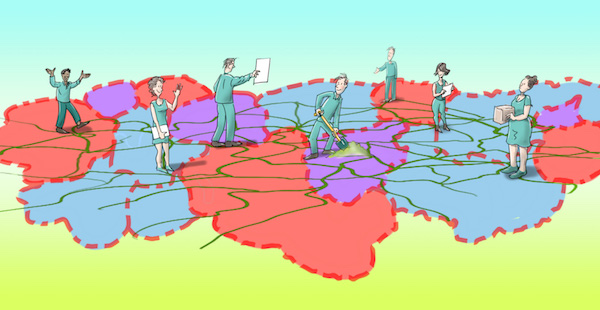 Green networks spread across red state boundaries of any kind of state and connects all kinds of people. People with Teal mindsets thrive here, because it allows for global frictionless collaboration. Trust, an effect of genuine integral human connections, enables exponential problem-solving power to emerge.
Green networks spread across red state boundaries of any kind of state and connects all kinds of people. People with Teal mindsets thrive here, because it allows for global frictionless collaboration. Trust, an effect of genuine integral human connections, enables exponential problem-solving power to emerge.
The decisive characteristic of the current emerging stage of Teal consciousness and consequent behavior is that every single individual is autonomous. Free to do what he or she wants, but directed by this one important distinction: Never at the cost of any other living soul.
So Teal is a mindset, driving generative behavior that thrives on the ever-growing Green network that we have today. The free autonomous individual Teal behavior roots in a healthy strong resilient Green network. That is the supportive collective: trusting and to be trusted,
So, concluding, this is not a method nor a framework. I just use my own guiding principles for all my behavior, until I learn better ones. And that is already a daily challenge. I practise radical transparency and I nurture and expand my connections with like-minded souls, supporting them where I can. I love to connect other people who might help each other. And at the same time I try to deeply care for my self, as this body is all I have and it needs to go a long way. There is still al lot to do, to survive this global transition.
So good to have your company and support on this fascinating journey!
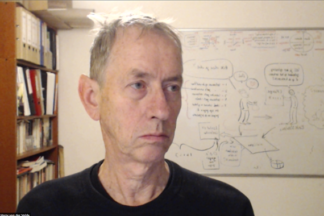
Sixty-four-year old Dutchman Harry van der Velde is a natural Visual Thinker who combines visualizing and thinking with his drawings skills to clarify the world around him. As that combination proved of value to others, he made this his profession. Harry is a free thinker and an independent collaborator working for the future of our grandchildren.
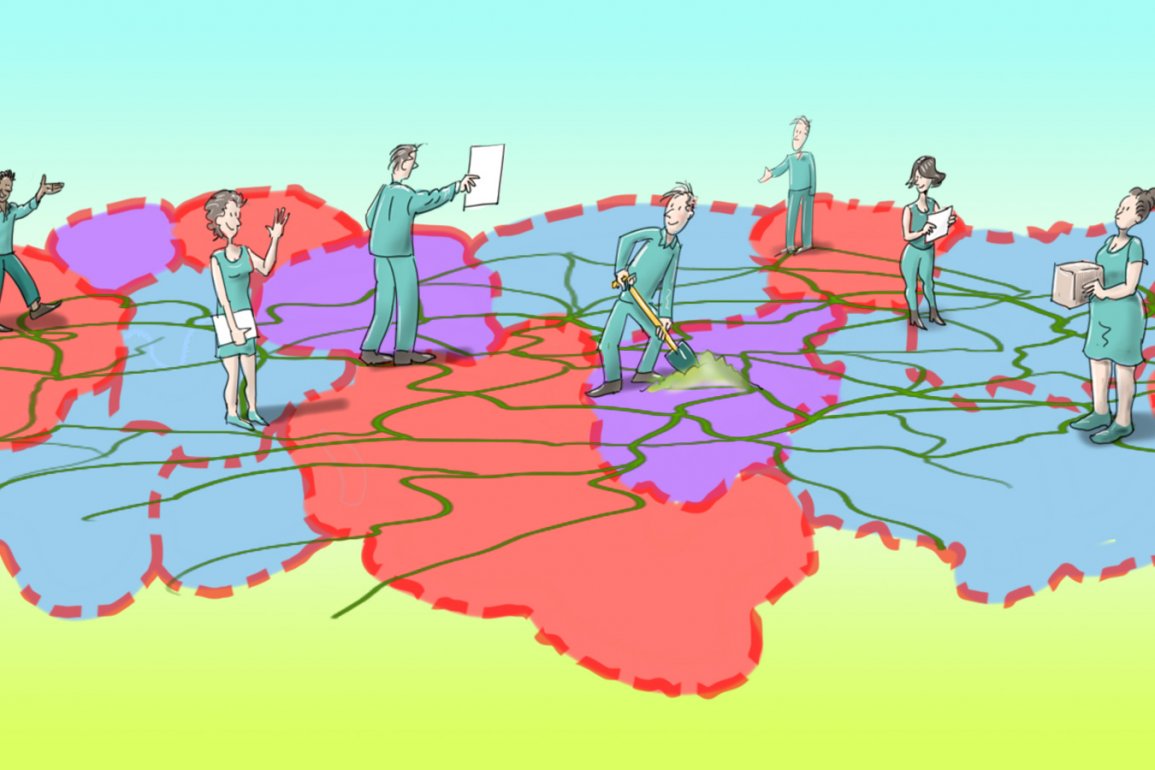
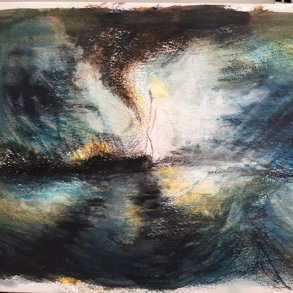
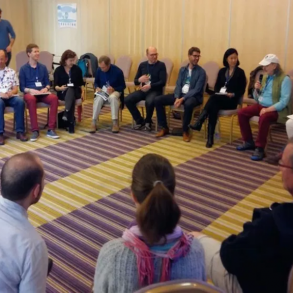
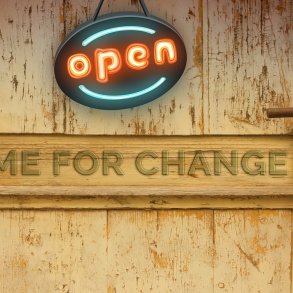
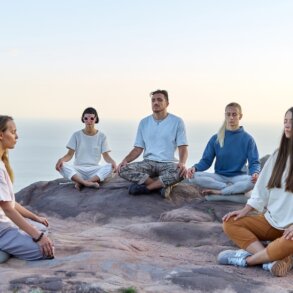
Dear Harry, yours is one of the most beautiful articles that I’ve ever read in EE. Thank you for gifting our readers with it!
> the complexity of today’s problems supercedes our natural abilities to see all the defining patterns when we urgently need to.
How true! Can that kind of complexity be evolution’s trick to help us realizing that cultivating distributed cognition and emergent collective intelligence is our best hope to meet systems-wide challenges?
> I long for a supporting environment with people that hold and practise the same values and principles.
Your longing matches my passion for architecting social spaces where the impact of evolutionary agents can get amplified and their tribes can thrive. Enlivening Edge is one of them.
Beautifully written, Harry. I love your vision of free, autonomous responses. But I feel uneasy about this urgent need to ‘handle today and tomorrow’. Isn’t this the same mindset that got us into this mess that you so accurately describe? Learning to handle, and recognising patterns both seem to be to do with ‘gaining control’, getting familiar with something so we can predict where it’s going. This is an understandable reaction to feeling out of control. We want to get back in the driver’s seat.
‘As soon as change itself shows some degree of regularity, it inevitably produces patterns. And patterns are what form and shape our world—us, too. And naturally we are very good at spotting them.’
But there is another way. Rudolph Bahro wrote, “When the forms of an old culture are dying, the new culture is created by a few people who are not afraid to be insecure”. Staying with that not knowing, with that uncertainty is not easy, we are pulled towards regularity and patterns. But in reality they have no predictive capacity. The future is just as likely to break the pattern as follow it. We need to be able to question every certainty, every ‘meta-principle’, to experience that freedom of response you/we value so highly.
Perhaps then we will be open to hearing a deeper meaning, powerfully alive in the moment, that has no form, no recognisable form, no justification, no validity, no reproducibility, therefore no communicability, beyond its very alive experience.